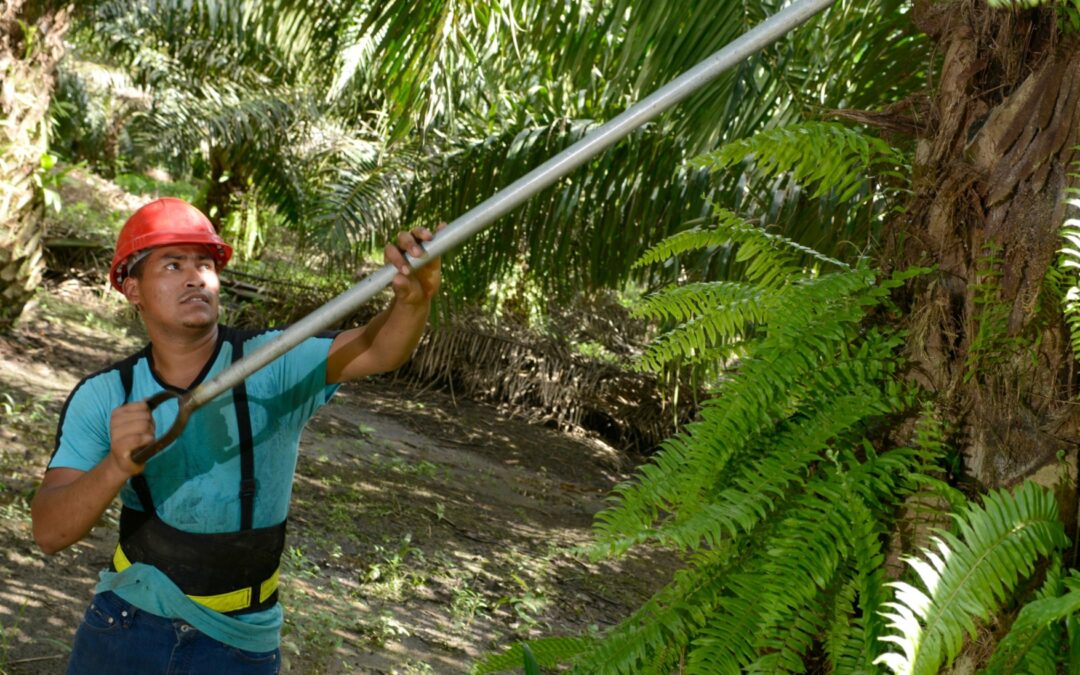A guest article by Robert Anson, Director of International Business Development for Henkel & Board Member of The Sustainability Consortium
As I look back on two decades with Henkel, I find it interesting that a completely unexpected career trajectory has brought me some of the greatest satisfaction. About 10 years ago, I took on the informal role of sustainability champion at Henkel, in addition to my formal role in sales, representing the sales organization in partnership with our Research & Development (R&D) colleagues targeting our relationship with key retailers. I found myself exploring the intersection of sales and sustainability: working with our R&D folks to develop sustainable solutions; educating and engaging employees around the world; and, ultimately, helping the consumer packaged goods (CPG) industry make everyday products more sustainable.
Long before “sustainability” become a buzz word, it was simply a way of doing business at Henkel. Early in its nearly 145-year history, Henkel developed new, more sustainable production processes and products, such as phosphate-free laundry detergents. Today, Henkel has set ambitious targets as part of a comprehensive sustainability strategy, which aims to add value while reducing its environmental footprint by 2030.
Many retailers, however, weren’t really talking about sustainability a decade ago. To spark that discussion and drive change in the industry, Henkel became a founding member of The Sustainability Consortium (TSC) in 2009.
TSC is a global organization of diverse stakeholders working together to transform the consumer goods industry with an aspiration of making all consumer goods sustainable. TSC is working to enable a world where people can lead fulfilled lives in a way that does not impact people and the planet. Their work focuses on the largest sustainability issues that occur in consumer goods supply chains by working with industry and our partners in academia and civil society in balance to make bold changes that are good for business and good for people and the planet.
When I became involved with TSC, it became even more clear to me how important sustainability was, and its significant impact on our retailers and consumers. I remember back to when TSC held its first set of meetings in 2008 with about 25 companies and organizations that would eventually become members, and I realized we had a powerhouse team that would help drive change in the industry.
It was clear early on that cooperation from suppliers would be critical to TSC’s mission to help companies make everyday products more sustainable. Over the years, TSC has developed an independent, science-based, holistic sustainability performance solution to put sustainability at the heart of supply chain transparency conversations.
One of those tools, which Henkel was instrumental in helping TSC develop and create, is a sustainability insight system that rates products on a variety of sustainability social and environmental “hotspots”, such as packaging, animal welfare, deforestation and water use. This index — known today as The Sustainability Insight System (THESIS) — tracks the sustainability performance of products covering the full breadth of food and consumer goods. By helping suppliers understand and then tell the story of their products, the index makes it easy for buyers to make informed decisions to support their corporate sustainability goals. Today, THESIS is used by over 1,500 manufacturers representing almost $1 trillion worth of consumer product annual sales.
Henkel is one of our founding members and brings a unique and complete perspective on supply chain and sustainability within the home and personal care sector. Rob lends us his expert advice and experience to help us make decisions that are not only good for the planet, but also good for business.
Euan Murray, Chief Executive The Sustainability Consortium
After all, today’s consumers are increasingly making buying decisions based on more factors than they have in the past. Beyond price and quality of the product itself, they want to know products are safe and healthy for their families — and the planet. They want to buy from companies whose values align with their own.
Today, TSC has a global impact and more than 100 members and partners representing manufacturers, retailers, suppliers, service providers, nonprofits, civil society organizations, governmental agencies and academics. At Henkel, we are grateful to have a seat at the TSC table, where we can support sustainability improvement through our own experience and knowledge.
Together with partners like TSC, we’re advancing sustainability along the entire value chain. Along with my own evolution, it’s been a highlight of my career to see how the TSC has evolved — and Henkel’s role in that. It’s been a fantastic journey that gives me hope for the future.

